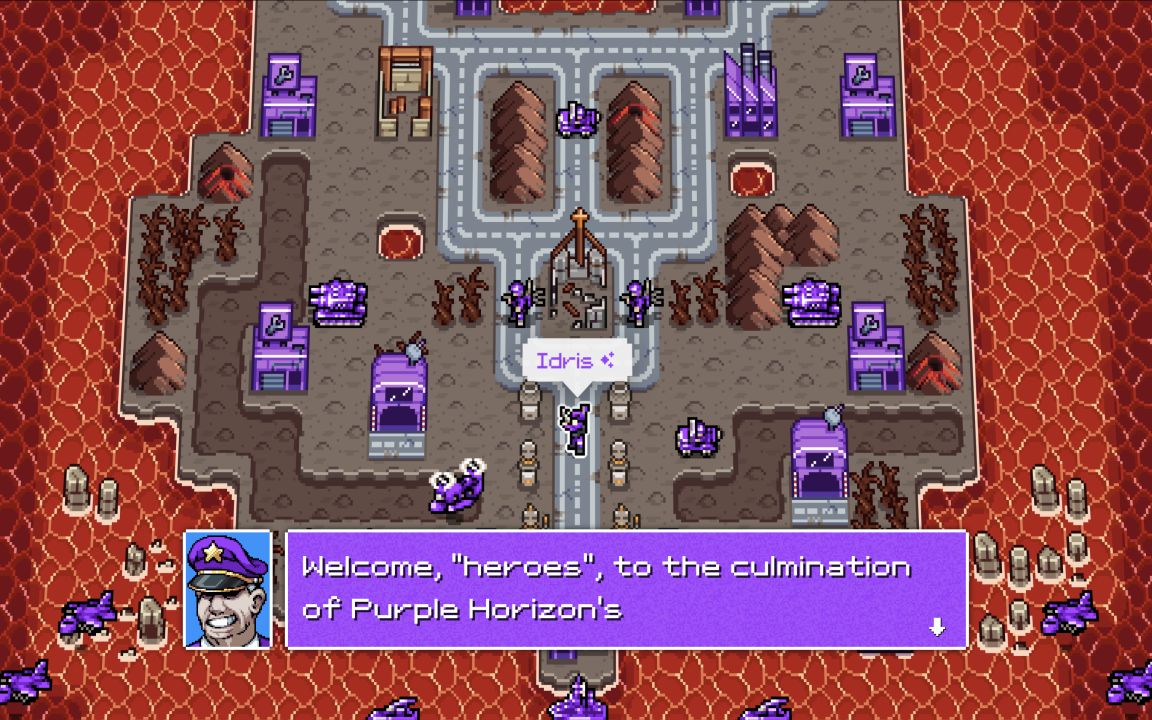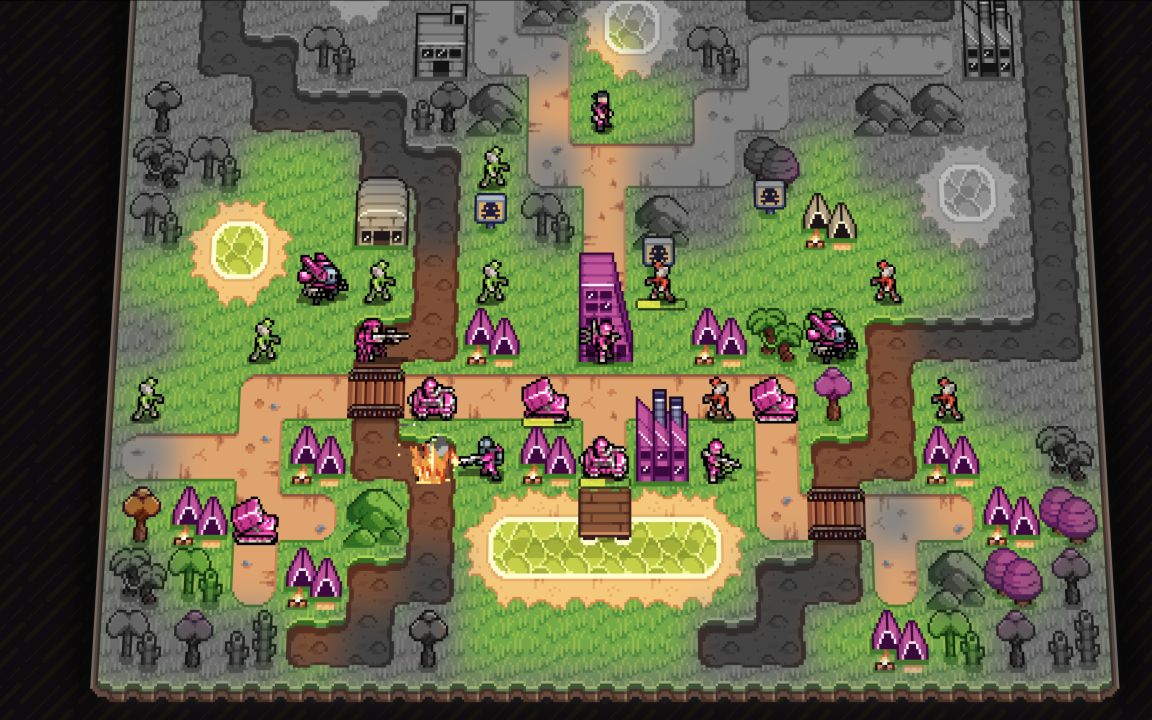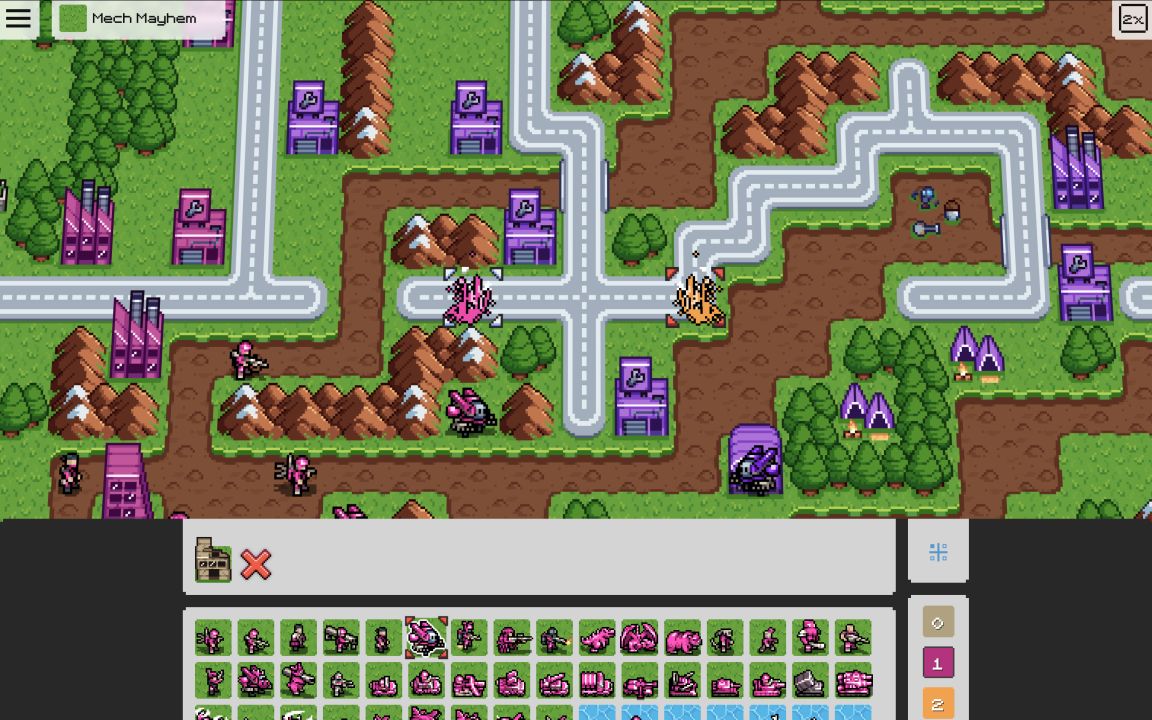Athena Crisis Review
Advance Wars lookalike on your browser
If you squint at a screenshot of Athena Crisis, you might easily think you are looking at an image from Nintendo's Advance Wars series, which first appeared on the Game Boy Advance (GBA) in 2001, and which was recently rebooted for the Switch. In fact, Athena Crisis is so heavily inspired by Advance Wars that at times I felt like I was playing an elaborate Rom hack of the original GBA game.

Perhaps Athena Crisis' most unique attribute is how flexible it is: you can start a game on Steam, then continue that same game on a browser, or on your iPhone or Android device. What's more, the game is open source, allowing enthusiasts to tinker with its code or even use it as a starting point for their own tactics games.
For those who have kept their GBA carts warm with repeated play over the past twenty years, this might feel like manna from heaven. For me, a casual enjoyer of tactics games with happy but vague memories of Advance Wars, Athena Crisis scratched an itch I'd forgotten I had, but also left me wanting more from its back-to-basics gameplay.
The game takes place on small, grid-based 2D maps where you'll need to order your army units around to defeat the enemy. Winning usually involves destroying all enemy units or capturing their HQ, although there are missions with other objectives like escorting a unit to a designated space on the map or surviving for a set number of turns. Most maps contain buildings that need to be captured and defended: houses that provide funds, and barracks, factories, airbases and shipyards to build new units for your army.
The basics are easy to grasp, but battles soon evolve into a tense puzzle in which you try to unpick your opponent's forces without over-committing and leaving yourself vulnerable to a devastating counterattack. Much depends on careful positioning in relation to the enemy. You can click on any unit (both yours and the enemy) to see how far they can move and attack next turn, as well as how much damage they would deal and receive when attacking specific foes. Some (not all) campaign missions obscure the battlefield in fog-of-war, which ramps up the tension as you try to locate enemy forces without blundering into an ambush. Naturally, almost all units are strong against some foes and weak against others, and Athena Crisis generally does a good job of communicating this information. Some of it is obvious: don't send an infantryman to fight a helicopter, unless he owes you money or ghosted your sister.

While the fundamentals are rock solid, I couldn't help but miss some of the features that were a part of Advance Wars but which are absent here. It may sound superficial, but in Advance Wars each attack triggered a canned animation where you got to see your little squad of toy soldiers raining fire down on the enemy. Athena Wars opts to simply show your units attacking directly on the battlefield. This speeds up encounters (which some players will appreciate) at the expense of the drama of watching units go boom in a cartoon close-up. More significantly from a gameplay perspective, there is no direct equivalent to the Commanding Officers with their attendant powers, which were often dramatic and could be game-changing. In place of CO powers we have skills, which can be swapped out prior to a mission, but the ones I unlocked during the campaign were underwhelming, conveying effects like a temporary boost to infantry attack power or a small discount to building new units. These skills are fine, but they make the game feel a bit dry, more about crunching numbers than screaming 'oh-my-god-how-will-I-survive-this-Tsunami/Meteor-Strike/Snipe-Attack??' through gritted teeth.
After a couple of gentle levels, the main campaign thrust me into pitched battles in which my mistakes were punished mercilessly. I picked the normal/default difficulty level, feeling breezily confident in my ability to bulldoze my way through the campaign, only to have my complacent rear end handed to me repeatedly. Getting through the first third of the campaign proved to be a rough experience. The AI, although predictable, was aggressive and usually smart enough to target my squishiest and most valuable units rather than the cannon fodder I had pushed forward to take one for the team (sorry, aforementioned basic infantryman). I soon learned that the first few turns were absolutely crucial, and that it was often better to restart a level rather than trying to soldier on after a mistake.
Athena Crisis generously allows you to reset your moves as many times as you like before ending your turn (at which point, your moves are committed and can't be changed). I made ample use of this helpful feature to get through several tough missions, but in other respects I feel the campaign could've provided a gentler introduction. The difficulty curve felt steep initially, then surprisingly flat later on. Also, as far as I could tell after poking around the menus, there's no way to change the difficulty after starting the campaign, which feels like a harsh limitation for players who might be struggling, or indeed those who may want to ramp up the challenge. Halfway through my time with a pre-launch build of the game, the developers added a tutorial to the menu screen—a necessary addition that I would strongly recommend to all newcomers to the genre, as well as players like me who are perhaps a bit rustier with the Advance Wars formula than we might like to admit.

In the end, I did manage to battle through my mistakes. Once I fully understood the role of each of my units, missions felt tough but fair. Carefully positioning my snipers and artillery pieces, both of which have to hunker down in a location before firing, soon became second nature. Many maps present a few different ways to proceed, often with a broad frontline paired with a sneaky backdoor route to the opponent's HQ. Much as I would've liked more bombastic skills/CO powers, I have to say there was an impressive variety of units to make use of, from planes to naval units to jetpack troopers and saboteurs, all of which helped prevent the campaign from growing stale.
Tying it all together is a daft, campy story about some mcguffin crystals that enable instant travel across the multiverse. It's a tale that was clearly crafted to allow the developer to showcase their full toolset, which includes not only a bevy of pallet-swap maps (snowy mountains; deserts; swamps; volcanoes; etc) but also some unexpected 'environmental' enemies such as dinosaurs and zombies. There's no way anyone will play this game for the story, but it fits well with the overall tone of the game, as do the bright pixel graphics and upbeat chiptune soundtrack. The banter that occurs between various members of your army before and after missions is well written—cheesy, but not annoyingly so.
Speaking of the game's toolset, there's a level editor available which I found fairly easy to use, so you don't have to go tinkering with the source code to create custom missions or indeed a whole custom campaign. Even before release, there were several player-designed campaigns available. The most popular options so far seem to be... recreations of Advance Wars missions within Athena Crisis. I guess I shouldn't be surprised.

If you've returned to Advance Wars time after time over the years and love the idea of spending dozens of hours creating your own custom scenarios and playing those made by similarly dedicated community members—then this is definitely for you. In that sense, Athena Crisis in its current form feels more like a starting point for something special than a polished final product. For me, its battles lacked some of the fresh ideas present in alternatives like Wargroove (another indie tactics game heavily inspired by Advance Wars) but were still enjoyable enough to justify the asking price.
If you do decide to dive in, please take my advice: never, ever park your heavy tank next to a zombie. It won't end well.
 Comments
Comments










